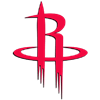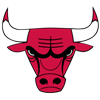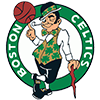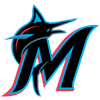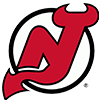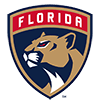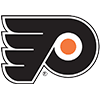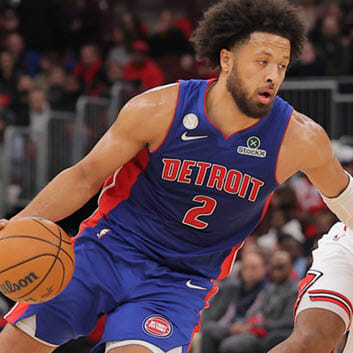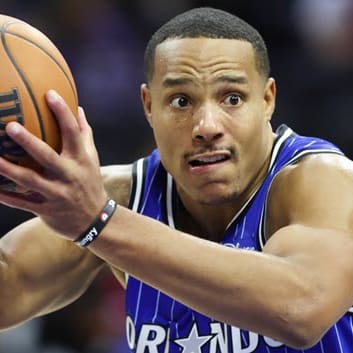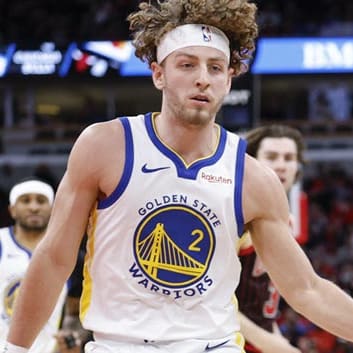STATE OF THE FRANCHISE
After two seasons of rebuilding under GM David Kahn that seemed to be going nowhere, the Timberwolves finally appeared to turn the corner last season and posted their most wins in the post-Kevin Garnett era. Ricky Rubio, the No. 5 overall pick in the 2009 draft, finally joined the NBA, after playing in Spain several years, and was an immediate sensation with his passing ability and strong defense. With Rubio energizing the team's defense and averaging 10.6 points and 8.2 assists, Minnesota was poised to make the playoffs at 21-19 on March 9. Unfortunately, on March 9, Rubio tore the ACL in his knee and Minnesota's playoff hopes were dashed as the team went 5-21 the rest of the season. But the early-season improvement wasn't all due to Rubio. Kevin Love showed his 2010-11 breakout season was no fluke, and a victory in the All Star game's three-point shooting contest highlighted his versatility. He took the next step and has become one of the best players in the game. Nikola Pekovic was another highlight as he took over the starting center job from Darko Milicic early in the season and flourished with more minutes. Pekovic overcame the constant foul trouble that plagued his rookie season and became a force in the interior as he averaged 13.9 points per game and 7.4 rebounds per game. The roster beyond those three players was re-tooled in the offseason. Michael Beasley's struggles on defense and inconsistency led
STATE OF THE FRANCHISE
After two seasons of rebuilding under GM David Kahn that seemed to be going nowhere, the Timberwolves finally appeared to turn the corner last season and posted their most wins in the post-Kevin Garnett era. Ricky Rubio, the No. 5 overall pick in the 2009 draft, finally joined the NBA, after playing in Spain several years, and was an immediate sensation with his passing ability and strong defense. With Rubio energizing the team's defense and averaging 10.6 points and 8.2 assists, Minnesota was poised to make the playoffs at 21-19 on March 9. Unfortunately, on March 9, Rubio tore the ACL in his knee and Minnesota's playoff hopes were dashed as the team went 5-21 the rest of the season. But the early-season improvement wasn't all due to Rubio. Kevin Love showed his 2010-11 breakout season was no fluke, and a victory in the All Star game's three-point shooting contest highlighted his versatility. He took the next step and has become one of the best players in the game. Nikola Pekovic was another highlight as he took over the starting center job from Darko Milicic early in the season and flourished with more minutes. Pekovic overcame the constant foul trouble that plagued his rookie season and became a force in the interior as he averaged 13.9 points per game and 7.4 rebounds per game. The roster beyond those three players was re-tooled in the offseason. Michael Beasley's struggles on defense and inconsistency led Minnesota to not even make a qualifying offer to retain him. Wesley Johnson (the 2010 No. 4 overall draft pick), Martell Webster, Wayne Ellington, Anthony Randolph, and Anthony Tolliver were all moved off the roster, as well as Kahn's Darko Milicic, whom he infamously took a gamble on. In their place, the T-Wolves brought in more established veterans who fit into head coach Rick Adelman's system (Chase Budinger, Brandon Roy) and players more known for defense (Andrei Kirilenko, Greg Stiemsma). With Adelman's track record (.597 career winning percentage), he should have enough talent to make Minnesota a playoff contender. However, Minnesota's fortunes may rest on how quickly Rubio can return to full strength after his knee injury. Rubio is aiming for a return in December, but it's an open question if he can return to his previous form less than a year removed from major knee surgery. The T-Wolves may struggle to hit on all cylinders until the second half of the season as a result.
PLAYING TIME DISTRIBUTION
Love should get most of his playing time at power forward with Pekovic at center. Those are the two constants on the team (at least until Rubio returns from his knee injury). Small forward may be a committee with Derrick Williams and Chase Budinger providing offense, but Andrei Kirilenko starting and providing defense. Both guard positions are wide open until Rubio returns. Brandon Roy will likely be the starter, or at least the player with the most impact, at shooting guard. However, his minutes may be rationed and he may sit out some games (especially back-to-back games). Luke Ridnour may get the bulk of his minutes at shooting guard with Jose Barea at point guard. Alexey Shved is a wildcard who could also factor into both guard spots as well. Once Rubio is back to full speed, he'll be the primary point guard with an open competition for minutes at shooting guard.
PLAYER OUTLOOKS
Center
Nikola Pekovic: Pekovic was one of the biggest surprises in fantasy basketball last year, as he came out of relative obscurity to be a double-double machine for the Timberwolves. After being promoted to Minnesota's starting lineup, Pekovic averaged 15.4 points and 8.5 rebounds while providing efficient percentages from the floor (54.7) and free-throw line (74.2). At 6-11, 290, Pekovic has the frame of a dominant big man, but he actually plays below the rim and relies on a surprising amount of finesse on the offensive end. His lack of athleticism means marginal production on defense (0.8 bpg, 0.6 spg), and he's not going to help much in the assists (0.7) category. He did miss about a dozen games due to a lingering ankle injury last year, but Pekovic underwent surgery early this offseason and is expected to be at full strength entering the 2012-13 campaign. With Kevin Love getting most of the headlines in Minnesota, Pekovic could benefit from obscurity and be had at a decent price on draft day. Don't forget about the big center from Yugoslavia when targeting double-double production from the center position.
Greg Stiemsma: It's very rare to see a player who averaged just 2.9 points and 3.2 rebounds play a sizable role for a playoff team, but that's exactly what Stiemsma did for the Celtics last season. After bouncing around foreign leagues and the NBA D-League from 2008-2011, Stiemsma finally caught on with an NBA team last year. The 25-year-old center started the season in a depth role for Boston, but after numerous frontcourt injuries, he was elevated to a larger role. The defensive specialist averaged 1.5 blocks and 0.7 steals in just 14 minutes per game. His hard work in Boston caught the eye of the Timberwolves' brass, who rewarded Stiemsma with a two-year deal this offseason. Minnesota will ask Stiemsma to backup Kevin Love and Nikola Pekovic while providing a defensive force off the bench. Like Chris Andersen, formerly of the Nuggets, in past seasons, Stiemsma is a one-category specialist for fantasy purposes, but he may be productive enough in blocks to warrant a look in deeper formats.
Forward
Kevin Love: It seemed Love had established his fantasy value in 2010-11, when he averaged 20.2 points and 15.2 rebounds. How does it get better than that? How does six more points per game sound? Love built on his breakout 2010-11 season with even better production during the shortened 2011-12 NBA season, increasing his scoring average to 26.0 per game while not sacrificing too much in the way of rebounding (13.3). The presence of Nikola Pekovic lightened Love's burden on the glass, allowing him to increase his 3-point attempts (5.1 per game). As a three-category (scoring, rebounding, three-pointers) monster, Love is a no-brainer first-round selection in fantasy drafts. However, you'll want to make sure you're covered in traditional big-man categories in which Love doesn't do well. He managed just 0.5 blocks per game, and his shooting percentage dipped below 45 percent (44.8) for the first time in his career. Health-wise, Love was limited to 55 games (of a possible 66) because of a concussion. Obviously, we saw him playing in the Olympic Games, so that episode is no longer an issue. Though concussions do have a way of recurring.
Chase Budinger: After three seasons in Houston, Budinger was shipped to Minnesota, where he will have a chance to earn significant minutes at small forward. He'll start the season behind Andrei Kirilenko on the depth chart, with Derrick Williams and Dante Cunningham also in play, but the Timberwolves saw enough in Budinger to send the 18th overall pick in the draft to Houston in order to get him. Budinger does very little defensively, but he's a talented and efficient scorer. In just 22.4 minutes per game last season, he averaged 9.6 points and 1.5 three-pointers per game while shooting 44 percent from the floor, 40 percent from three and 77 percent from the line. His per 36-minute numbers come out to 15.5 points and 2.4 three-pointers per game. He will likely give way to Kirilenko as the starter for defensive reasons, but Budinger could easily assume the role of high-volume shooter off the bench. His shooting numbers make him an enticing option late in drafts for deep leagues.
Andrei Kirilenko: After a 10-year run with the Utah Jazz and a one-year stop to play with CSKA Moscow last season, Kirilenko will make his new home as the starting small forward of the Minnesota Timberwolves. No longer the fantasy darling he once was five years ago, Kirilenko has still been extremely consistent over the past four years. The 11.7 points, 5.1 rebounds, 3.0 assists, 1.3 steals and 1.2 blocks he averaged in 2010-11 are almost identical to his numbers in the three previous seasons, so it's fairly safe to expect more of the same from the 31-year-old Russian. AK-47 will share time at the three with Chase Budinger, but there shouldn't be much of a playing time issue, considering how thin the T-Wolves are at the two. Kirilenko missed just two games in 2010-11 after missing at least 15 games in each of the two previous seasons, so hopefully he can remain on the court. Ricky Rubio (ACL) could return by December, and few players provide better looks for their teammates than Rubio, so Kirilenko should see plenty of easy looks courtesy of the Spanish point guard. If you are looking for late-round help at the three, with production in the defensive categories, Kirilenko could be the guy to target on draft day.
Derrick Williams: The No. 2 overall pick in the 2011 draft had a disappointing rookie season by averaging just 8.8 ppg and 4.7 rpg while making just 26.8 percent of this three-point shots. Part of the problem was that Williams struggled to find minutes (he played just 21.5 mpg) as he was often out of position. At 6-9 and 250 pounds, Williams is more suited to play power forward. However, the T-Wolves are set at power forward with Kevin Love and Nikola Pekovic. At small forward, Williams struggled with his defense on quicker players. And no player on the T-Wolves saw their game drop off more after Ricky Rubio went down with an injury. He was shooting 45.1 percent from the field before Rubio hurt his knee, as Rubio often found Williams for easy layups and alley-oops. Williams shot just 36 percent from the field the rest of the season. His playing out of position led to his name being mentioned in trade talks in the offseason. And he didn't exactly seem to inspire the organization's confidence when Minnesota acquired Andrei Kirilenko and Chase Budinger, which could make it even tougher for Williams to find minutes at either forward spot. Still, Williams has a promising mix of size and strength to play power forward but also handles the ball well enough, along with an outside game, to be an offensive threat at small forward. He's talented and young enough to find a regular role with Minnesota or elsewhere.
Louis Amundson: Amundson provides defense off the bench, as he averaged 10.6 rebounds and 2.1 blocks per 36 minutes in a reserve role with the Pacers last season while playing 12.6 minutss per game. He's more valuable in real basketball than fantasy basketball as a result. He may also get less playing time in Minnesota with a glut of front court big bodies ahead of him. Andrei Kirilenko and Greg Stiemsma will likely be ahead of him on the depth chart and counted on for their defense, which may leave Amundson with a limited role.
Dante Cunningham: Cunningham can provide defense off the bench with 7.9 rebounds and 1.3 blocked shots per 36 minutes last season. However, he looks buried on the depth chart after being traded to Minnesota this summer with three defensive options ahead of him in Louis Amundson, Andrei Kirilenko, and Greg Stiemsma.
Guard
Ricky Rubio: Rubio accomplished a remarkable feat in his first NBA season. He made general manager David Kahn look awfully smart. The Spanish phenom was having a rookie of the year-type campaign, averaging 10.6 points, over eight assists, four rebounds, and two steals per game - while shooting a much better-than-expected 34 percent from three-point range - before his knee gave out. Rubio suffered tears to his ACL and LCL on March 9, ending his rookie year and putting his status for the start of the 2012-13 season into question. When he does return, he'll be the established starter on a Minnesota team that is quickly growing into a dangerous team, which will only help his overall numbers.
Luke Ridnour: Ridnour was a versatile player for Minnesota last season, giving the T-Wolves needed depth at point guard while also being surprisingly effective when playing shooting guard. He was relatively efficient, shooting 44 percent from the field and 32.2 percent from three-point range. Ridnour even added an 89.1 percent free-throw percentage. Last year was a high-volume shooting year for Ridnour. He averaged 10.4 field goal attempts per game and 2.9 three point attempts per game, both the highest averages of his career. The only negative was that he missed 13 games with a nagging ankle injury. With Rubio out for the start of the season with a torn ACL, Ridnour has a good chance of winning the starting point guard role until Rubio is ready to return.
Jose Barea: It was a curious move when Minnesota signed Barea as a third point guard last summer, as it seemed unlikely he'd have a major role. However, he provided needed depth with Ricky Rubio suffering a torn ACL and Luke Ridnour missing 13 games with an ankle injury. When Barea was healthy and in the lineup, he was capable of putting up strong numbers. For example, Barea averaged 16.8 ppg and 9.8 apg over the final 13 games with both Ricky Rubio and Luke Ridnour out with injuries. Health was an issue as he missed 25 games with thigh, ankle, calf, and hamstring ailments. At 6-0 and 175 pounds, his slight build and attacking style makes him an injury risk. Still, he averaged a career-high 5.7 assists per game and could be the team's primary point guard until Rubio returns.
Brandon Roy: Roy missed the 2011-12 season when he decided to retire with chronic knee issues due to a lack of cartilage between the bones in each of his knees. The Blazers used the amnesty clause on him in Dec. 2011 as a result. Roy changed his mind about retiring and decided to make a comeback. As a free agent, he signed with Minnesota. It's not clear if his knees will hold up for a full season, but he's been participating in full practices early in training camp and says his knees are at full strength.
Alexey Shved: The 6-6 point guard is an intriguing NBA prospect who played in Russia before deciding to move to the NBA this summer. With CSKA Moscow of Russia last season, he averaged 11.3 points, 3.0 rebounds, 3.3 assists, 0.8 steals, and 1.2 three-pointers in 22 minutes per game. The 23-year-old guard is capable of playing both positions, but he'll likely play more shooting guard with Minnesota. He's seen as a strong shooter and able to knock down open shots more than create his own opportunities. Shved's playing time could be limited in his first season, but Ricky Rubio's return from a serious knee injury - along with the injury-prone histories of Brandon Roy, Jose Barea, and Luke Ridnour - could provide Shved opportunities to find a bigger role.
Will Conroy: Conroy has strong passing skills and provides the T-Wolves some depth at point guard with several injury-prone players ahead of him (including Ricky Rubio coming back from a torn ACL), but it's not clear if he'll make the final roster.
Malcolm Lee: Lee saw limited playing time during his rookie season as he suffered a torn meniscus in his knee before the season started and played just 19 games. He can run the floor well, but he needs to improve his shooting (just 39 percent from the field last season). Lee may be Minnesota's best defender in the backcourt after Ricky Rubio. While he's buried on the depth chart and will likely see limited minutes, he could carve out a regular role if he shines on defense.
SLEEPER
Nikola Pekovic: Pekovic should become a household name in his third season based on his growth in 2011-12. After being promoted to Minnesota's starting lineup, Pekovic averaged 15.4 points and 8.5 rebounds while providing efficient percentages from the floor (54.7) and free-throw line (74.2). With a starting job from the start this season, he should improve on those numbers.
BUST
Derrick Williams: It's hard to see how the 2011 No. 2 overall draft pick finds significant mintues on this roster with two players set at center and power forward and a host of options at small forward. He may need a trade to another team before he's finally able to get starter's minutes.








